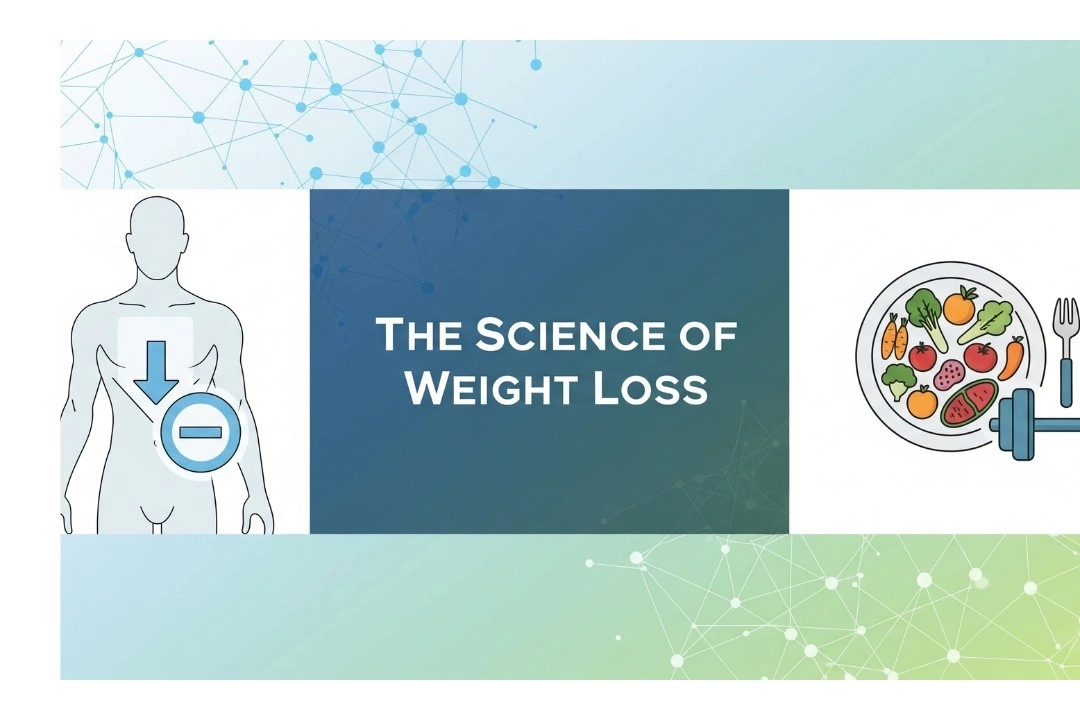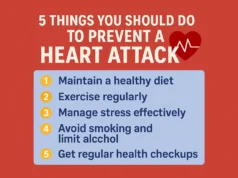
Contents
- 1 The Science of Sustainable Weight Loss: Debunking Common Myths
- 2 Myth #1: Crash Diets Are an Effective Way to Lose Weight
- 3 Myth #2: Carbs Are the Enemy of Weight Loss
- 4 Myth #3: You Can “Spot Reduce” Fat with Specific Exercises
- 5 Myth #4: All Calories Are Created Equal
- 6 The Scientific Approach to Lasting Success
- 7 Conclusion: A Journey Based on Facts
The Science of Sustainable Weight Loss: Debunking Common Myths
In the vast and often confusing world of health and fitness, the journey to lose weight is frequently derailed by misinformation. We are constantly bombarded with a new “quick-fix” diet, a miracle supplement, or an extreme workout routine that promises rapid results. However, the path to a healthier body is not paved with shortcuts but with a solid understanding of a few key scientific principles. This post will debunk some of the most persistent weight loss myths and provide a clear, science-backed approach to help you achieve lasting, sustainable results.
Myth #1: Crash Diets Are an Effective Way to Lose Weight
Many people believe that severely restricting calories is the fastest way to shed pounds. The truth is, crash diets are counterproductive and often lead to a cycle of weight loss and regain. When you drastically cut calories, your body goes into “starvation mode.” Your metabolism slows down to conserve energy, and your body begins to break down muscle tissue for fuel, not just fat. This loss of muscle further decreases your metabolic rate, making it easier to gain weight back once you return to your normal eating habits. The scientific approach favors a moderate and consistent calorie deficit, which is far more sustainable and protects your muscle mass.
Myth #2: Carbs Are the Enemy of Weight Loss
This is one of the most widespread myths. The idea that you must eliminate all carbohydrates to lose weight is simply false. The key lies in distinguishing between different types of carbs. Refined carbohydrates (found in white bread, sugary snacks, and sodas) are quickly broken down, causing a spike in blood sugar and leading to fat storage. However, complex carbohydrates (found in whole grains, vegetables, and legumes) are rich in fiber and nutrients. They are digested slowly, providing sustained energy and keeping you full for longer. A balanced diet should include healthy complex carbs, as they are a vital source of energy for your brain and body.
Myth #3: You Can “Spot Reduce” Fat with Specific Exercises
The dream of melting belly fat with endless crunches or toning your thighs with targeted leg raises is a common misconception. The reality, as supported by exercise physiology, is that fat loss is a systemic process. When you burn calories through exercise, your body draws energy from fat reserves throughout your entire body, not just the area you’re working. Targeted exercises are fantastic for building and strengthening muscle in a specific area, but they won’t magically burn the fat on top of that muscle. To lose fat, you must focus on a calorie deficit through a combination of a healthy diet and full-body workouts.
Myth #4: All Calories Are Created Equal
While the law of thermodynamics states that a calorie is a calorie, its effect on your body is far from equal. The nutrient density and hormonal impact of food are what truly matter. For example, 100 calories of spinach has a completely different effect on your body than 100 calories from a donut. The spinach provides fiber, vitamins, and minerals that promote satiety and good health, while the donut causes a rapid blood sugar spike, leading to an energy crash and increased cravings. A scientific approach to weight loss emphasizes choosing nutrient-dense foods that support your body’s functions and hormonal balance.
The Scientific Approach to Lasting Success
- Embrace Energy Balance: At its core, weight loss is about consuming fewer calories than your body burns—a calorie deficit. This deficit doesn’t need to be extreme. A moderate deficit of 300-500 calories per day is often enough to see steady, sustainable progress.
- The Power of Protein: Protein is a crucial macronutrient for weight loss. It helps you feel full, reduces cravings, and is essential for preserving muscle mass during weight loss. Include lean protein in every meal.
- Hormones and Sleep: Sleep is not a luxury; it’s a non-negotiable part of weight management. Poor sleep disrupts the hormones ghrelin (which stimulates appetite) and leptin (which signals fullness). Prioritizing 7-9 hours of quality sleep per night is one of the most effective strategies for controlling your hunger.
- Don’t Fear the Weights: Strength training is a game-changer. Building muscle increases your basal metabolic rate, meaning you burn more calories at rest. This is why a combination of resistance training and cardiovascular exercise is more effective than cardio alone.
Conclusion: A Journey Based on Facts
By letting go of outdated myths and embracing a scientific, evidence-based approach, you can transform your weight loss journey from a frustrating cycle of fads to a rewarding path of sustainable health. Focus on a moderate calorie deficit, nourish your body with whole foods, prioritize a balanced exercise routine, and never underestimate the power of good sleep and stress management. The key to lasting success isn’t a secret; it’s a consistent commitment to a smarter, healthier lifestyle.
Fitness World
Top 10 Tourist Spots in Sri Lanka: The Ultimate Travel Guide








